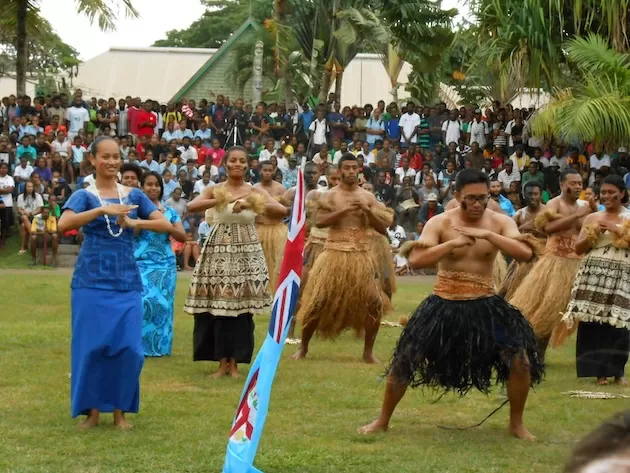Fiji, a nation located west of Tonga in the central Pacific, is a tropical paradise known for its breathtaking natural beauty and luxurious beach resorts. However, behind this idyllic image lies a turbulent history of political instability and human rights issues.
For 38 years, Fiji has been plagued by a series of armed coups that have overturned democratically elected governments and caused widespread chaos and uncertainty. The first coup took place in 1987, led by Colonel Sitiveni Rabuka, who overthrew the government of Prime Minister Timoci Bavadra. This was followed by three more coups in 2000, 2006, and 2009, each one further destabilizing the country and its people.
The consequences of these coups have been devastating for Fiji. The economy has suffered, with tourism and foreign investment declining due to the political instability. The people have also endured human rights violations, including censorship of the media, restrictions on freedom of speech, and discrimination against minority groups.
However, despite these challenges, Fiji has shown resilience and determination to overcome its turbulent past. In 2014, the country made a significant step towards stability when it held its first democratic elections in eight years. This marked a peaceful transition of power and a promising new beginning for Fiji.
Under the leadership of Prime Minister Frank Bainimarama, Fiji has made remarkable progress in restoring democracy and promoting human rights. The government has implemented various reforms to strengthen the rule of law, improve transparency, and protect the rights of its citizens. These efforts have been recognized by the international community, with Fiji being praised for its commitment to democracy and human rights.
Moreover, the country has also made significant strides in its economic development. Tourism, which is the main source of income for Fiji, has bounced back, with the number of visitors increasing steadily each year. The government has also prioritized infrastructure development, creating better roads and utilities to support the growing tourism industry and improve the lives of its people.
In addition to these improvements, Fiji has also taken steps to address the issue of climate change, which poses a significant threat to the country’s future. As a small island nation, Fiji is highly vulnerable to the effects of rising sea levels and extreme weather events. The government has implemented policies to reduce carbon emissions and increase resilience to climate change, making Fiji a leader in the fight against this global crisis.
Despite the progress made, Fiji still faces challenges in its journey towards stability and prosperity. The scars of the past are still present, and there is much work to be done to heal and reconcile the nation. However, with the determination and resilience of its people, Fiji is on the right path towards a brighter future.
Today, Fiji stands as a shining example of a nation that has overcome adversity and emerged stronger. Its natural beauty and warm hospitality continue to attract visitors from all over the world. But beyond its stunning beaches and crystal-clear waters, lies a story of resilience, hope, and progress.
As we reflect on Fiji’s past, let us also look towards its future with optimism and support. Let us celebrate the achievements and progress made, and stand in solidarity with the Fijian people as they continue to build a better, more stable, and inclusive nation. Fiji has proven that it is possible to overcome even the darkest of times, and that with determination and unity, anything is possible.



